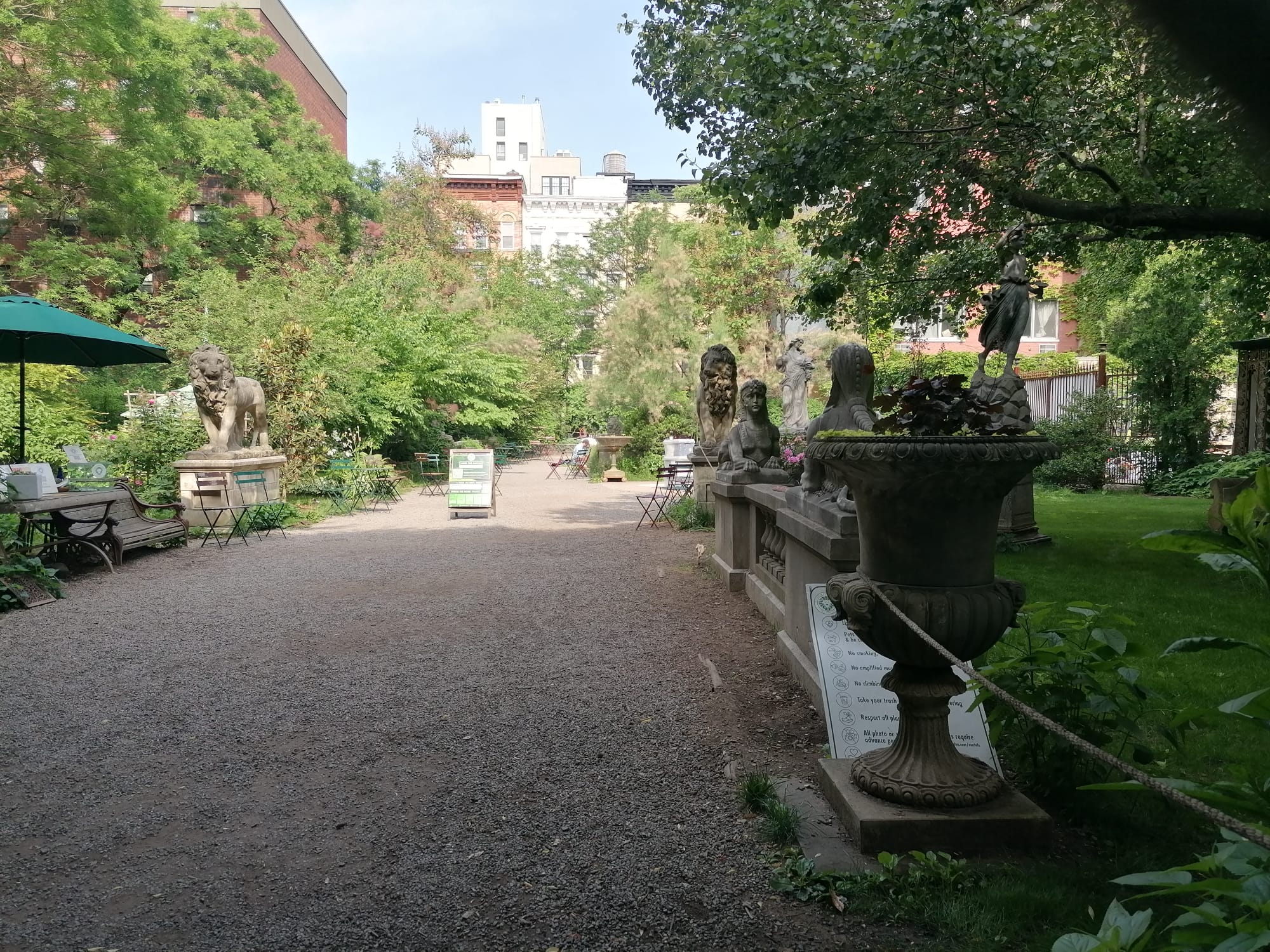“It’s a false choice to say we have to destroy a garden in order to solve the housing crisis,” Joseph Reiver commented to the New York Daily News. He is the executive director of Elizabeth Street Garden, Nolita Little Italy’s green space that has been at the center of a controversial legal case since 2021.
On May 8, civil court Judge Richard Tsai ruled that the garden will have to be evicted. He gave the nonprofit that is running the urban oasis until September 10 to relocate. He also ordered them to pay off the rent arrears–nearly $95,500 plus interest. Last week, the garden’s legal team appealed the decision. The community launched a letter-writing campaign to ask New York City Mayor Eric Adams to impede the eviction and, since last Wednesday, it has already received nearly 90,000 signatures.
Instead of the garden, owned by the city but leased out since 1991, the plan, called “Haven Green,” is to asphalt the lot and build a 123-unit affordable apartment complex for LGBTQ seniors, with open space and intergenerational programming. Homeless and very-low income seniors are included in the program. The final aim is to relieve the housing crisis that has made it prohibitively expensive to live in New York for the elderly.

“This decision is a huge win for all New Yorkers,” Adolfo Carrión Jr., commissioner of the Department of Housing Preservation and Development (HPD), said in a statement. “The fight over this land highlights how difficult it can be to build affordable housing, especially in neighborhoods that offer strong economic opportunities. We are undeterred.”
But Elizabeth Street Garden’s defenders, like Mr. Reiver, think otherwise. They claim that it is a more than needed green space in a highly populated neighborhood, known for historic buildings where apartments are typically very small. Its loss would be a blow to the environment and to its community–more than 5,000 residents and over 200,000 visitors per year. “The garden is open to everyone. It’s free, it’s public, there’s hundreds of free programs. It’s the definition of the opposite of ‘not in my backyard.’ It’s literally for everyone,” Mr. Reiver said.











